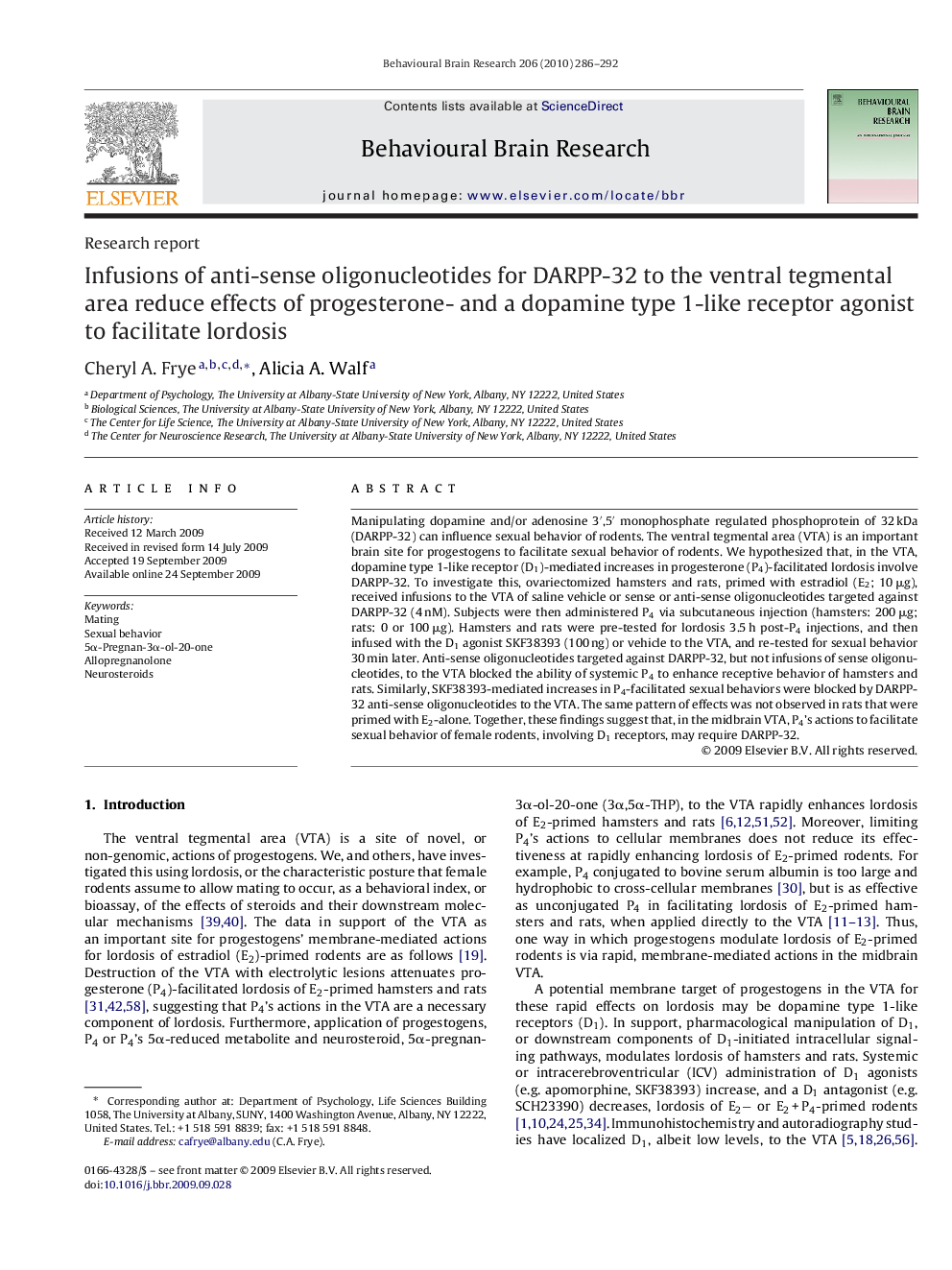| Article ID | Journal | Published Year | Pages | File Type |
|---|---|---|---|---|
| 6260160 | Behavioural Brain Research | 2010 | 7 Pages |
Manipulating dopamine and/or adenosine 3â²,5â² monophosphate regulated phosphoprotein of 32 kDa (DARPP-32) can influence sexual behavior of rodents. The ventral tegmental area (VTA) is an important brain site for progestogens to facilitate sexual behavior of rodents. We hypothesized that, in the VTA, dopamine type 1-like receptor (D1)-mediated increases in progesterone (P4)-facilitated lordosis involve DARPP-32. To investigate this, ovariectomized hamsters and rats, primed with estradiol (E2; 10 μg), received infusions to the VTA of saline vehicle or sense or anti-sense oligonucleotides targeted against DARPP-32 (4 nM). Subjects were then administered P4 via subcutaneous injection (hamsters: 200 μg; rats: 0 or 100 μg). Hamsters and rats were pre-tested for lordosis 3.5 h post-P4 injections, and then infused with the D1 agonist SKF38393 (100 ng) or vehicle to the VTA, and re-tested for sexual behavior 30 min later. Anti-sense oligonucleotides targeted against DARPP-32, but not infusions of sense oligonucleotides, to the VTA blocked the ability of systemic P4 to enhance receptive behavior of hamsters and rats. Similarly, SKF38393-mediated increases in P4-facilitated sexual behaviors were blocked by DARPP-32 anti-sense oligonucleotides to the VTA. The same pattern of effects was not observed in rats that were primed with E2-alone. Together, these findings suggest that, in the midbrain VTA, P4's actions to facilitate sexual behavior of female rodents, involving D1 receptors, may require DARPP-32.
